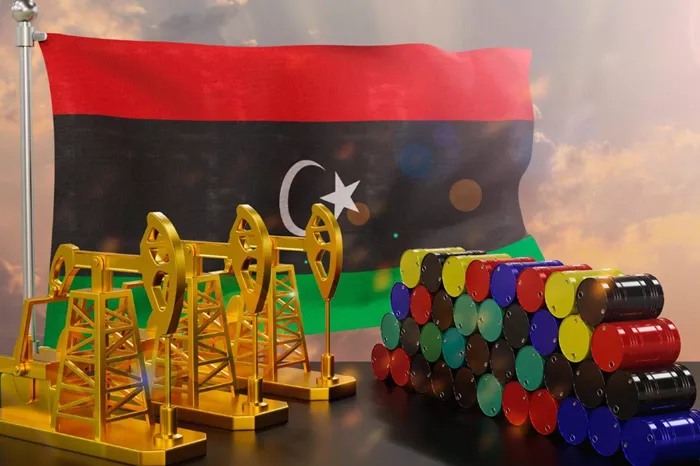Libya’s crucial oil output is under significant threat as fresh protests disrupt operations, highlighting the ongoing instability in the region. Demonstrators have shut down key oil distribution valves in response to the recent kidnapping of Brigadier General Mustafa al-Whayshi, a senior intelligence officer, which they attribute to government inaction.
The affected valves connect the Sharara oil field—the largest in Libya—and the El Feel field to the Zawya refinery, a facility with a processing capacity of 350,000 barrels per day, accounting for nearly one-third of the country’s total oil production. The protests reflect broader frustrations with the government’s handling of security issues and economic grievances.
Al-Whayshi was abducted earlier this week, and while the kidnappers have not publicly identified themselves, protesters claim that the government has failed to respond adequately to his disappearance. Intelligence officials suggest that the kidnapping may be linked to ongoing investigations concerning national security matters. Kidnappings of government officials have become increasingly common in Libya, often tied to corruption investigations involving various militias.
This latest disruption comes just a month after Libya’s oil production had rebounded following a previous blockade imposed by the Libyan National Army (LNA). That blockade was resolved after a political agreement between rival governments in Tripoli and Tobruk, allowing production to ramp up to 1.3 million barrels per day by mid-October. The return of major energy companies like Eni and BP to Libya had further bolstered optimism for the oil sector.
However, with protests now threatening operations once again, analysts are wary of potential setbacks for Libya’s oil ambitions. The National Oil Corporation (NOC) has reported that Repsol and OMV are preparing to resume drilling activities in key regions, but these plans may be jeopardized by ongoing unrest.
As a nation where oil revenues underpin 95% of state spending, any disruption in production can have serious ramifications for Libya’s economy. Tim Eaton, a senior research fellow at Chatham House, emphasized the critical importance of the oil sector: “It is almost the entirety of the Libyan economy. It basically is what keeps everything running.”
The situation remains fluid as local grievances continue to escalate. With calls for further protests and potential shutdowns of additional oil fields looming, market participants are closely monitoring developments. Any significant disruption could lead to increased volatility in global oil prices and impact supply chains reliant on Libyan crude.
As Libya navigates these turbulent waters, stakeholders are hopeful for a resolution that stabilizes both production levels and political dynamics. The international community is watching closely as negotiations unfold between various factions within the country.
Read more:

